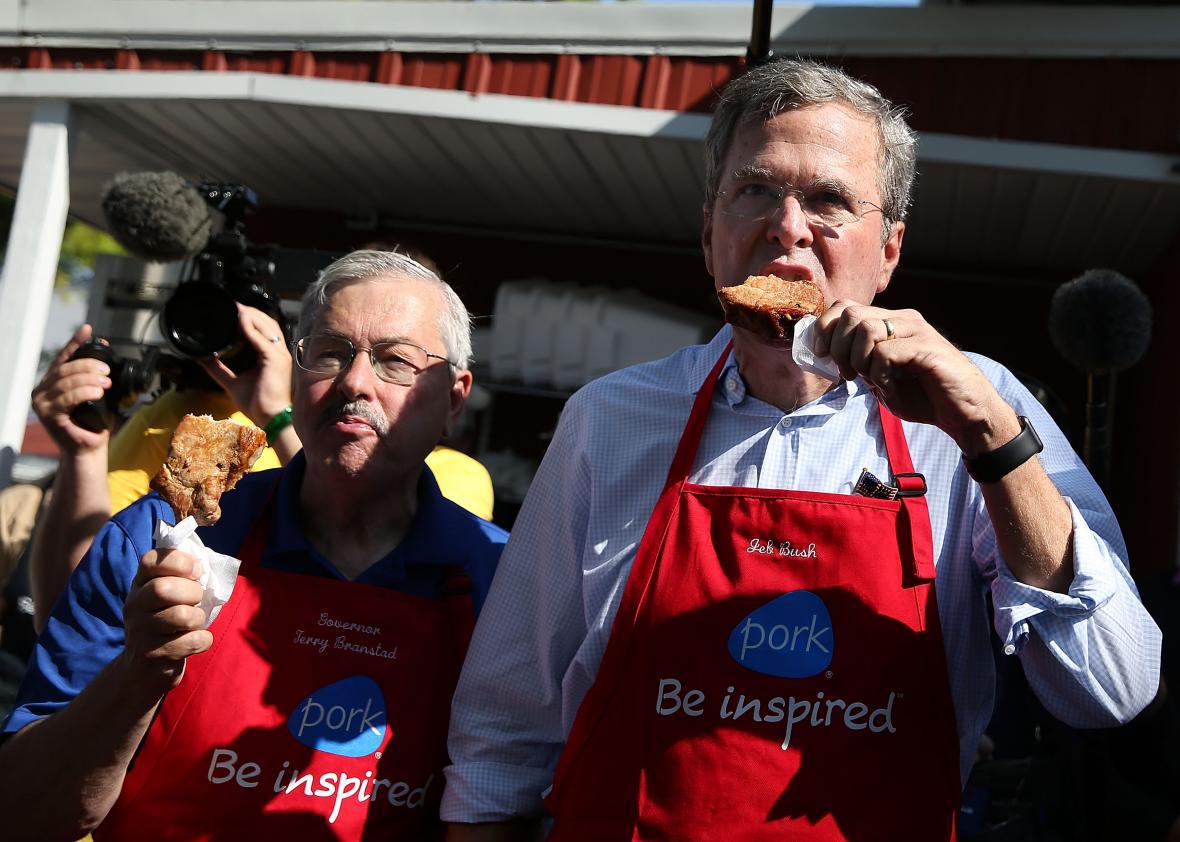When Jeb Bush announced that his goal as president would be to usher in an era of consistent 4 percent economic growth, I argued that, aside from being fanciful, it was also a sign that his policy ideas regarding taxes and the federal budget would probably be untethered from any semblance of mathematical plausibility. “Don’t be surprised,” I wrote, “to see white papers promising that with the right mix of tax cuts, deregulation, and tweaks to immigration, we’ll suddenly be riding high on a new period of growth, which will allow for all sorts of heroic predictions about tax revenue and the future of the deficit.”
Last night, Jeb Bush released his proposal for a predictably sweeping round of tax cuts. Spiritually, it’s a sort of watered-down cousin of his GOP opponent Marco Rubio’s “puppies and rainbows” approach to reforming the IRS code. Rather than choose between cutting rates for high earners (as old-school Republican supply-siders would prefer) and targeting relief to the middle class (as new-wave Republican reformacons would like), Bush chooses to hand out goodies to just about everybody. Among other things, he would:
- Cut the seven tax brackets we have today down to three, with lower rates of 28, 25, and 10 percent (today, the top rate is 39.6 percent).*
- Double the standard deduction taken by most filers.
- Increase the Earned Income Tax Credit, which helps low-wage workers.
- Eliminate the inheritance tax, which would help the very, very rich.
- Kill the marriage penalty.
- Slash corporate rates to 20 percent (from today’s top rate of 35 percent) and let businesses expense capital investments immediately (sounds wonky, but it’s a big deal).
In the end, wealthy taxpayers and companies get lower rates, while Bush says more than 15 million additional people would owe no federal income taxes at all. You get a tax cut! And you get a tax cut! And you get a tax cut!
And how would he pay for all this? Well, for one, he’s following Donald Trump’s populist example by vowing to do away with the carried interest loophole that benefits rich private equity fund managers. But mostly, he’d just cap unnamed “deductions used by the wealthy and Washington special interests.” Easy as that.
The thing is, there are only so many savings to be found in sweeping away those assorted breaks, and probably not enough to balance the budget (as Bush claims he would like to do) while doling out new cuts left and right. To figure that out, all you have to do is look at the old Simpson-Bowles tax plan, which, while also eliminating all sorts of personal exemptions, had to jack up taxes on investment income, which Bush doesn’t, in order to fund similar, and in some respects more modest, cuts elsewhere.
Of course, that could simply mean Bush is planning to cut government spending more than Simpson-Bowles envisioned. Or, it could mean he’s making some magical assumptions that tax cuts will help spur breakneck economic growth capable of producing all the revenue Washington needs. Right now it seems an awful lot like the latter. Combined with industry deregulation, immigration reform, greater energy production, and an improved education system, Bush argues that tax reform “will unleash increased investment, higher wages and sustained 4% economic growth, while reducing the deficit.”
So, I underestimated the man. It turns out his heroic predictions about taxes, growth, and the deficit also involve some mumbling about education and oil. I regret the error.
*Correction, Sept. 9, 2015: This post originally misstated the three lower rates Bush would replace the current seven tax brackets with. They are 28, 25, and 10 percent, not 28, 25, and 15 percent.
